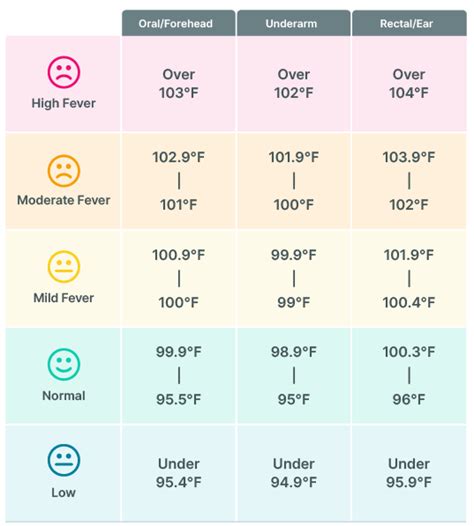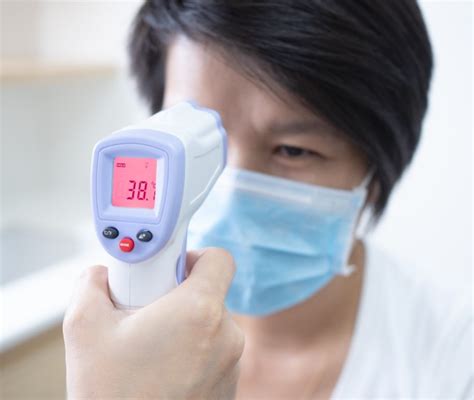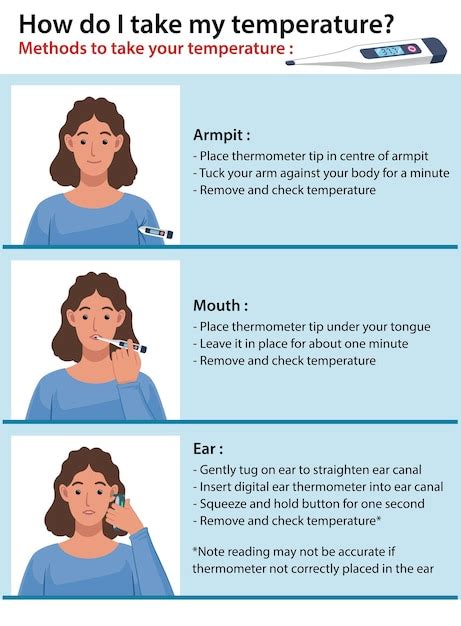Intro
Learn if 99.6 is considered a fever, understanding normal body temperature, low-grade fever symptoms, and when to seek medical attention for high fever readings, feverish conditions, and temperature fluctuations.
Body temperature is a vital sign that can indicate whether someone is healthy or not. A normal body temperature is usually around 98.6°F (37°C), but it can vary slightly from person to person. In this article, we will delve into the topic of body temperature, specifically addressing the question of whether 99.6°F is considered a fever.
The human body is a complex system that maintains its internal temperature through various mechanisms. The hypothalamus, a small region in the brain, acts as the body's thermostat, regulating temperature by controlling sweat production, shivering, and other processes. When the body detects an infection or inflammation, it responds by increasing its temperature to fight off the invading organisms. This elevated temperature is what we commonly refer to as a fever.
A fever is generally defined as a body temperature above 100.4°F (38°C). However, it's essential to note that the definition of a fever can vary depending on the individual, their age, and the circumstances. For example, in infants and young children, a fever is often defined as a temperature above 100°F (37.8°C). In adults, a fever is typically considered to be a temperature above 100.4°F (38°C).
Now, let's address the question of whether 99.6°F is considered a fever. Based on the definition, 99.6°F is slightly below the typical threshold for a fever. However, it's crucial to consider the context and individual factors. For instance, if someone's normal body temperature is around 98.6°F (37°C), a temperature of 99.6°F (37.7°C) might be slightly elevated, but it's not necessarily a fever.
Understanding Fever Ranges

To better understand fever ranges, let's break them down into categories:
- Normal body temperature: 97.7°F to 99.5°F (36.5°C to 37.5°C)
- Low-grade fever: 99.6°F to 100.3°F (37.6°C to 37.9°C)
- Mild fever: 100.4°F to 102°F (38°C to 39°C)
- Moderate fever: 102.1°F to 104°F (39.1°C to 40°C)
- High fever: above 104°F (40°C)
As you can see, 99.6°F falls into the low-grade fever category, but it's essential to remember that this is not necessarily a cause for concern. In fact, a low-grade fever can be a normal response to a minor infection or inflammation.
Causes of Elevated Body Temperature

There are many potential causes of elevated body temperature, including:
- Infections: bacterial, viral, or fungal
- Inflammation: due to injury, surgery, or chronic conditions like arthritis
- Autoimmune disorders: such as lupus or rheumatoid arthritis
- Medications: certain antibiotics, antihistamines, or blood pressure medications
- Environmental factors: exposure to heat, humidity, or extreme temperatures
It's crucial to identify the underlying cause of an elevated body temperature to provide proper treatment and care.
Measuring Body Temperature

Measuring body temperature accurately is vital to determining whether someone has a fever. There are several methods to measure body temperature, including:
- Oral thermometers: placed under the tongue
- Rectal thermometers: inserted into the rectum
- Axillary thermometers: placed in the armpit
- Temporal artery thermometers: scanned across the forehead
- Infrared thermometers: used to measure temperature from a distance
Each method has its own advantages and disadvantages, and it's essential to choose the most suitable method for the individual and the situation.
Treating Fever

Treating fever depends on the underlying cause and the individual's overall health. In most cases, fever can be managed with:
- Over-the-counter medications: such as acetaminophen or ibuprofen
- Rest and hydration: to help the body recover
- Cool compresses: to reduce body temperature
- Medications: prescribed by a healthcare professional to treat the underlying cause
It's essential to consult with a healthcare professional if the fever is severe, persists for an extended period, or is accompanied by other concerning symptoms.
Preventing Fever

Preventing fever is often a matter of maintaining good health habits, such as:
- Practicing good hygiene: washing hands regularly
- Staying up-to-date on vaccinations: to prevent infections
- Avoiding close contact: with people who are sick
- Getting enough sleep: to help the body recover
- Eating a balanced diet: to support immune function
By following these tips, individuals can reduce their risk of developing a fever and promote overall health and well-being.
Common Misconceptions About Fever
There are many common misconceptions about fever, including: * Fever is always a sign of infection: fever can be caused by various factors, including inflammation, autoimmune disorders, or environmental factors. * Fever is always a cause for concern: low-grade fever can be a normal response to a minor infection or inflammation. * Fever should always be treated with medication: in some cases, fever can be managed with rest, hydration, and cool compresses.It's essential to separate fact from fiction and consult with a healthcare professional if there are concerns about fever or any other health issue.
Conclusion and Final Thoughts

In conclusion, 99.6°F is not necessarily a fever, but it can be a sign of a low-grade fever or an elevated body temperature. It's essential to consider the context, individual factors, and underlying causes to determine the best course of action. By understanding fever ranges, causes, and treatment options, individuals can take control of their health and make informed decisions.
We invite you to share your thoughts and experiences with fever in the comments below. Have you ever had a fever that lasted for an extended period? How did you manage it? Share your story and help others understand the importance of proper fever management.
What is a normal body temperature?
+A normal body temperature is usually around 98.6°F (37°C), but it can vary slightly from person to person.
Is 99.6°F a fever?
+99.6°F is slightly below the typical threshold for a fever, but it can be a sign of a low-grade fever or an elevated body temperature.
How can I treat a fever?
+Treating fever depends on the underlying cause and the individual's overall health. In most cases, fever can be managed with over-the-counter medications, rest, hydration, and cool compresses.
Can I prevent fever?
+Preventing fever is often a matter of maintaining good health habits, such as practicing good hygiene, staying up-to-date on vaccinations, avoiding close contact with people who are sick, getting enough sleep, and eating a balanced diet.
When should I consult a healthcare professional about a fever?
+It's essential to consult with a healthcare professional if the fever is severe, persists for an extended period, or is accompanied by other concerning symptoms.
